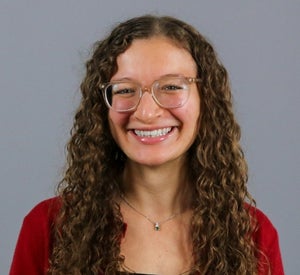Dietitian Nutritionist Program (MS)
Format(s)
On-campus
On-campus
Degree Type
Accelerated Master of Science, Master of Science, or Master of Science with a Post-Baccalaureate Year
Accelerated Master of Science, Master of Science, or Master of Science with a Post-Baccalaureate Year
Duration
Accelerated MS Entry Point and Post-Baccalaureate Entry Points
3 years (6 terms)
Didactic Program in Dietetics (DPD) Graduate
2 years (4 terms)
Format(s)
On-campus
On-campus
Degree Type
Accelerated Master of Science, Master of Science, or Master of Science with a Post-Baccalaureate Year
Accelerated Master of Science, Master of Science, or Master of Science with a Post-Baccalaureate Year
Duration
Accelerated MS Entry Point and Post-Baccalaureate Entry Points
3 years (6 terms)
Didactic Program in Dietetics (DPD) Graduate
2 years (4 terms)

